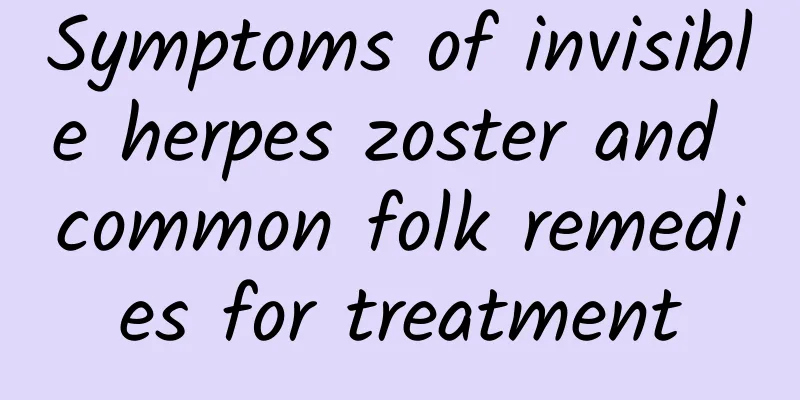Do you believe it? Your heart rate determines your life span

|
Many people can’t believe that their heart rate is related to their life expectancy? So let’s find out through the following. Resting heart rate 60 beats per minute, can live to more than 90 Human life span is closely related to heart rate. Experts teach you how to manage your heartbeat The total number of heartbeats in a person's lifetime is about 2.5 billion to 3 billion times. If the resting heart rate is around 60 beats, the life expectancy can reach 93 years. A slower resting heart rate will extend the life expectancy, while a resting heart rate greater than 80 beats will shorten the life expectancy. A large number of clinical studies have also confirmed that people with a faster resting heart rate have a significantly increased risk of developing various cardiovascular diseases. Glossary: Heart rate: The number of times the heart beats in one minute. Resting heart rate: The number of heartbeats per minute when you are awake, inactive and at rest. Exercise heart rate: the heart rate state maintained by the human body during exercise. Managing assets well can make you rich, managing your heart well can make you live longer 1 The slower the heartbeat of an animal, the longer its life span. What about humans? Too fast or too slow is not good, if the resting heart rate is 60 beats, the life expectancy can reach 93 years Scientists have long discovered that small mammals such as mice and rabbits have very fast heart rates, up to hundreds of beats per minute, but their lifespan is only 1 to 3 years. On the contrary, large mammals such as whales are very heavy and have a slow heart rate of only about 20 beats per minute, but their lifespan can reach 30 to 40 years. A tortoise called Galapagos can live up to 177 years, and its heart beats only six times per minute. Although this phenomenon has not been fully explained, it has given people an inference that a slower heartbeat means a longer life. "Managing the heart, a large part is 'managing the heartbeat'," said Li Ximing, chief physician of the Department of Cardiology at Gulou Hospital, during yesterday's education event. Many patients are aware of the need to prevent cardiovascular and cerebrovascular diseases, but many people do not understand that a healthy heart rate is also closely related to the prevention and treatment of cardiovascular and cerebrovascular diseases. What is heart rate? Experts say that every beat of a person's pulse represents an effective heartbeat, and the number of heart beats per minute is the heart rate. Some studies have shown that a normal adult with a resting heart rate (heart rate at rest) of around 60 beats has the longest life expectancy, which can reach 93 years old (of course, excluding other diseases). But generally speaking, it is ideal to control the resting heart rate between 55-70 beats per minute. If it is less than 45 beats per minute, there may be a risk of arrhythmia. People who exercise regularly will have a slower heart rate, but they are energetic and have no discomfort. This is a physiological bradycardia. 2 What is the relationship between heart rate and cardiovascular disease? A fast heart rate can easily lead to high blood pressure and a greater chance of sudden death In recent years, more and more medical research results suggest that an increased resting heart rate can increase the incidence and mortality of cardiovascular diseases, thereby causing serious harm to health. Qian Weichong, deputy chief physician of the Cardiology Department of Jiangsu Provincial People's Hospital, told reporters that an increased heart rate reflects the activity of the sympathetic nerves in the body. Sympathetic excitement will secrete a large amount of catecholamines such as adrenaline and norepinephrine. Under the action of these hormones, the heart rate increases, blood pressure rises, and breathing speeds up. When the sympathetic nerves remain active and the level of adrenaline secretion continues to rise significantly, the heart's consumption also increases. Sympathetic nerve activity and hypertension are causally related. Li Ximing, chief physician of the Department of Cardiology at Gulou Hospital, pointed out that if the heart rate is too fast, the chance of developing hypertension is high, and conversely, high blood pressure can also cause damage to heart function. Sudden death is the most serious type of coronary heart disease, and excessive activation of the sympathetic nerves is closely related to sudden death. "There have been statistical studies that show that after major events such as earthquakes, the number of deaths from heart disease increases." Director Li Ximing said that the sudden deaths of many young people have sounded the alarm for us. Young people today are under great pressure in life and work, and long-term sympathetic nerve excitement leads to high blood pressure, so young people should pay more attention to heart rate management. Norwegian researchers tested the resting heart rate of 30,000 people twice over a period of 10 years and found that for those whose heart rate was less than 70 beats per minute 10 years ago, if their heart rate increased to 85 beats per minute 10 years later, the risk of death from heart disease would double; for those whose heart rate was between 70 and 85 beats per minute 10 years ago, if their heart rate increased to more than 85 beats per minute 10 years later, the probability of death would increase by 80%. If the resting heart rate is lowered, the effect is just the opposite. If a person's heart rate was 70 to 85 beats per minute 10 years ago and his heart rate drops to below 70 beats per minute 10 years later, the risk of death from heart disease can be reduced by 40%. 3 What should you pay attention to when using exercise to “manage” your heartbeat? Exercise heart rate is "170-age". Exceeding it will lead to excessive exercise, while less than that will lead to poor results. How to measure resting heart rate? Generally, you can just measure your pulse yourself. Before getting up in the morning, press your index and middle fingers on your pulse to count how many times your pulse beats in one minute. You can also simply count the number of times your pulse beats in 10 seconds and multiply it by 6. However, patients with atrial fibrillation, ventricular premature beats, etc. may have inconsistencies between pulse and heart rate. Qian Weichong, deputy chief physician of the Cardiology Department of Jiangsu Provincial People's Hospital, told reporters that many elderly people now have electronic blood pressure monitors at home, which display their heart rate and can be taken out to measure before getting up in the morning. A resting heart rate that is too fast is not good, and a resting heart rate that is too slow is also not good. If it is less than 45 times per minute, it indicates the possibility of slow arrhythmia, which may cause cardiac arrest and should be taken seriously. So is there any way to keep your resting heart rate around 60 beats per minute? The first is through exercise. Regularly participate in various aerobic exercises of appropriate intensity to exercise your heart function. Li Ximing, chief physician of the Department of Cardiology at Gulou Hospital, said that generally speaking, there are also requirements for exercise heart rate. The general exercise heart rate is "170-age". For example, for a 50-year-old person, it is appropriate to control the exercise heart rate at 120 beats. Exceeding this means that the amount of exercise is too much, and if it cannot be achieved, there will be no effect. You should feel comfortable and not tired before exercising. Generally, exercise should not exceed 1 hour, and the best time each time is 30 minutes to 60 minutes. Exercise at least 3 times a week. The second is to maintain a proper weight. Obesity will increase the burden on the heart and increase the heart rate, so obese people should maintain a suitable weight through fitness exercises and adjusting their diet. At the same time, you should also pay attention to quitting smoking and limiting alcohol consumption. |
<<: It’s a pity to throw away the rice water! No one knows its medicinal value.
>>: It hurts so much! This happened when a clothespin caught my earlobe
Recommend
Adverse reactions to group a meningococcal vaccine
Group A meningococcal vaccine is actually also ca...
6 types of anemia can be treated with blood transfusion
For some cases of anemia, doctors give blood tran...
Benefits of soaking your feet in ginger water
As our awareness of health increases, foot soakin...
What are the methods to judge whether a baby has dull eyes?
The birth of a child with cerebral palsy is a hea...
Those people are not suitable to eat Panax notoginseng
I believe everyone is very familiar with Yunnan B...
Acupoints on the back of the hand and cervical and lumbar spondylosis
The incidence of cervical spondylosis has increas...
Symptoms of white matter lesions
When protein becomes pathological, it can lead to...
What is mycoplasma virus
Mycoplasma is neither a bacterium nor a virus. It...
How to regulate insufficient blood supply to the brain, TCM classification and treatment
Cerebral insufficiency mainly refers to ischemic ...
What are the effects and functions of Daqing Salt?
Daqing salt is also called table salt, Rong salt,...
What does left adnexal mass mean?
The left adnexal mass refers to adnexitis, or it ...
How to prevent and control mole crickets
Mole cricket, also known as Lala cricket and eart...
How to get pregnant quickly due to irregular menstruation
Menstrual irregularities are common in women in l...
How long does moxibustion take to be effective?
With the improvement of daily living standards, p...
What medicine should I take for stomach pain during confinement?
Many mothers will experience stomach pain during ...









